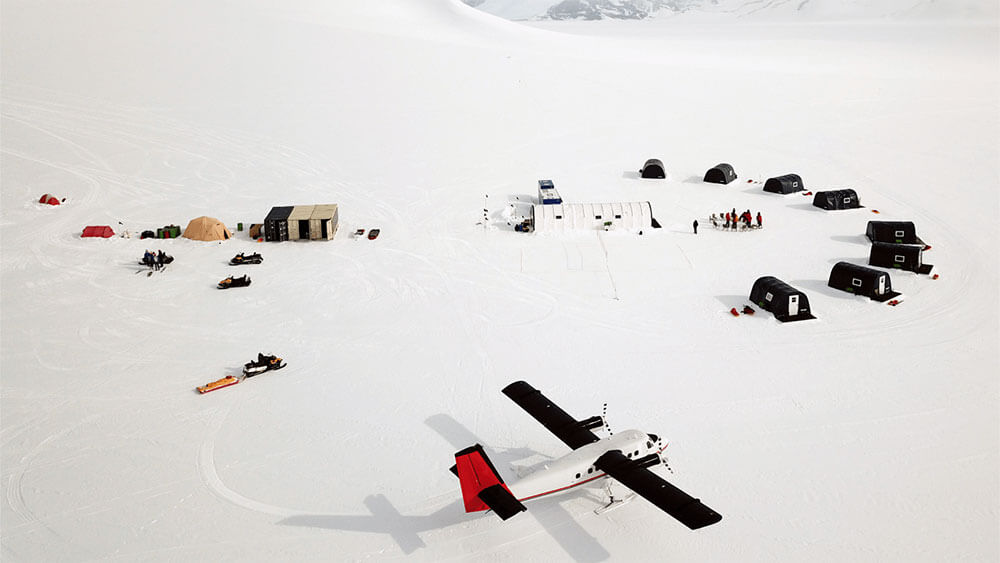
Airbnb and Ocean Conservancy will use the research findings from the Antarctica Airbnb Sabbatical expedition to inform educational and advocacy efforts concerning plastic pollution. (Airbnb)
Over the past few years, the biggest name in home-sharing has converted some surprising places into rentable accommodations: a record store in Brooklyn, a Taco Bell in Ontario, and the entire country of Sweden. Next month, the company will be popping up in its most unlikely destination yet when it sends five travelers to Antarctica. None of the residents on the world’s least-explored continent are trying to make some extra cash by renting their couches, though. It’s part of the Airbnb Sabbatical program, which the company said “provides eye-opening opportunities for people around the world to travel with purpose and do good” in a partnership with Ocean Conservancy.
That purpose, in this case, is to assist Kirstie Jones-Williams, an environmental scientist, with her research on microplastics. Airbnb will cover the costs of flights, lodging, and meals for the five winners, but they will not be paid for their role in the research. “As a Citizen Scientist, you’ll have the opportunity to contribute to real scientific research on the impact humans have on the environment,” the program’s website states. “Over the span of a month, you’ll work as a team, collecting and analyzing snow core samples to determine if microplastics have made their way into the interior of the continent. These findings could help change public policy surrounding how we use plastic and how to properly dispose of it.”
The “micro” in microplastics may make it seem like a small problem, but those tiny pieces of plastic are adding up in a big way. A recent study found trillions of the tiny particles in the San Francisco Bay, and Jones-Williams is aiming to know whether those microplastics — which have been found basically everywhere, including your tea cup — have reached Antarctica and what impact they are having on the continent.
There are plenty of questions about the impacts of microplastics, so it seems clear there’s a need to learn more. However, some have expressed skepticism about Airbnb’s approach.
While the Antarctic is certainly not suffering from overtourism, Jessica Green, who studies the politics of climate change at the University of Toronto, told Shannon Palus at Slate, “The last thing that Antarctic needs right now is more people going down there.”
“Research into microplastics is important, but these volunteers won’t just be ‘ambassadors’ on behalf of Antarctica, or the oceans, or environmental science,” Caroline Haskins, a staff writer at VICE, wrote. “They’re also, by default, ambassadors for Airbnb, informing the public that the company cares about the environment.”
For its part, Airbnb has no plans to actually set up properties to host other visitors on the Arctic tundra, and says its initiative is tied to a larger goal. “Airbnb is not going to solve climate change, but we all have a responsibility to do what we can and use our capacity to help take steps forward,” Chris Lehane, Airbnb’s senior vice president of global policy and communications, said in an interview with the Associated Press. “A lot of travel in the world takes place in and around big events. Can we find ways when people are going to travel around these big events, to make them much more sustainable?”
For guests who don’t want to board a plane to Antarctica, Airbnb unveiled another experience that stays closer to the ground (and above-freezing temperatures). Check out the Goodyear blimp listing on the company’s website. And for tips on making your event have a better impact on the environment, watch the PCMA webinar, “Creating a Sustainable Future for Events.”
David McMillin is an associate editor at Convene.
